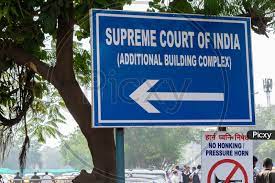(A) Chartered Accountants Act, 1949, Section 21, 21A, 21B, 29A – Chartered Accountants’ (Amendment) Act, 2006, clause (7), (8) and (9) of Part 1 of the Second Schedule – Chartered Accountants’ (Procedure of Investigation of Professional and Other Misconduct and Conduct of Cases) Rules, 2007,Rule 9(3)(b), Chapter V – Chartered Accountants – Validity of Rule 9(3)(b) of the Rules, 12007 – Challenge as to – Whether Rule 9(3)(b) of the Rules, 2007 is inconsistent with and beyond the rule-making power of the Central Government? – Complaint against appellant-Chartered Accountant – Examination of complaint –Rule 9(3) goes beyond what is provided for under Section 21A(4) in terms of the options available to the Board of Discipline in case it disagrees with the opinion of the Director (Discipline) – Other than the option of advising the director to further investigate, Rule 9(3) provides the additional option to the Board for proceeding to deal with the complaint by itself or referring it to the Disciplinary Committee, depending on whether the alleged misconduct falls under the First Schedule or the Second Schedule – Held that the impugned rule is completely in sync with the object and purpose of framing the Chapter on ‘Misconduct’ under the Act – Accepting the contention of the Appellant will create an anomalous situation – The Director (Discipline) who functions as a secretary to the Board of Discipline as per Section 21A (2) will be having greater powers than the Board itself – The ‘prima facie’ opinion of the Director will become nothing but a final opinion if the Board will have no option except to direct the Director (Discipline) to further investigate the matter – The Section is silent as to what would happen in a situation where the Director (Discipline) on further investigation concludes in accordance with his preliminary assessment – Therefore, even if we accept, for the sake of argument, that Rule 9(3) cannot be saved under Section 29A(2)(c), as it directly relates to furthering the purposes of the Act in ensuring that a genuine complaint of professional misconduct against the member is not wrongly thrown out at the very threshold, it can be easily concluded that the impugned Rule falls within the scope of the general delegation of power under Section 29A(1). (Para 34 and 37)
SUPREME COURT OF INDIA
2024 STPL(Web) 84 SC
[JT 2024 (2) SC 340 = 2024 INSC 94]
Naresh Chandra Agrawal Vs. Institute Of Chartered Accountants Of India And Others
Civil Appeal No. 4672 of 2012-Decided on 8-2-2024
https://stpllaw.in/wp-content/uploads/2024/04/2024-STPLWeb-84-SC.pdf







